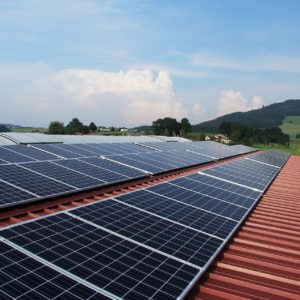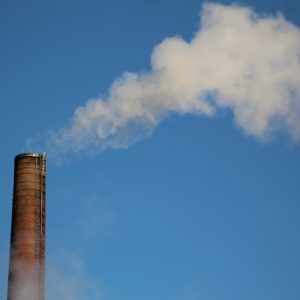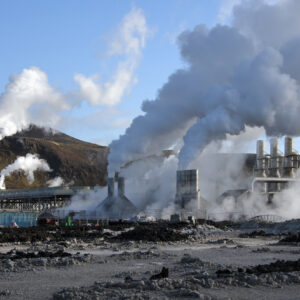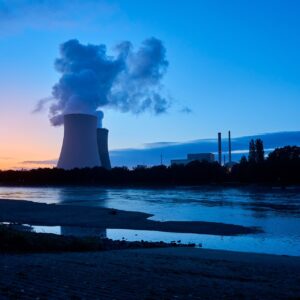"Other methods are quite new. McCarty’s farm reduces water consumption by using soil-moisture probes and smart cow-cooling technologies and ups energy efficiency with electric tractors, LED lighting and variable speed motors. The longer-term, direct supply relationship with Danone has really changed the trajectory of his family’s farm, he said."
Articles from Around the Web
Lego invests $2.4 million in direct-air capture carbon removal
"About 80 percent of Lego bricks are made from oil-based materials, and the company acknowledged in September that it would be unable to meet a 2021 pledge to use recycled plastic without boosting production emissions. The company sells an estimated 60 billion bricks annually."
Startups aim to curb climate change by pulling carbon dioxide from the ocean—not the air
"One challenge for all these approaches is determining exactly how much CO2 the decarbonated water absorbs and at what rate, figures that are critical for selling carbon credits to companies looking to offset their emissions. To avoid that uncertainty, Equatic plans to pipe its CO2-stripped seawater to the top of a 13-meter-high cooling tower and drop it through the air, where it absorbs atmospheric CO2 in a way that can be precisely measured before it is returned to the ocean."
Vidalia Mills Finds A Better Way To Grow And Trace Hybrid Pima Cotton
"Vidalia is working with farmers on developing a not-for-profit that would distribute the technology to any mills or supply chains that would adhere to its standards. 'Farmers are teaching us,' Feibus said. 'They’re eking a living out of a very challenging environment and are innovative, entrepreneurial and deeply committed to the land and the way of life.'"
Homegrown Energy Means Lower Prices and Lower Emissions
"Republican lawmakers have been vocal about the need for permitting reform, and while there are ongoing conversations with their Democrat counterparts, the looming November election has seemingly put these discussions on hold. House Republicans continue to advance permitting measures out of the House, only for them to die in the Democrat-led Senate. Any durable policy must have buy-in from both political sides, and permitting for energy projects fits the bill."
Schlumberger to Invest Nearly $400 Million in Carbon-Capture Venture
"Oil-field-services company Schlumberger said late Wednesday that it would pay 4.12 billion Norwegian krone ($381.5 million) for the stake in the company and would contribute its own carbon-capture business to the combined venture. Schlumberger may also make 1.36 billion Norwegian krone in performance-based added payments in the next three years."
Geothermal cuts emissions and costs at these Minnesota public schools
"The Netherlands, Denmark, Sweden and Belgium have been the primary users of geothermal aquifers, but Darcy aims to change that. Ed said the startup has expanded to Wisconsin and will now begin adding more states that have the right groundwater characteristics to work with its technology."
Nuclear Energy Is the Only Way to Achieve Maine’s Climate Goals
"Maine used to host a nuclear power plant that generated 119 billion kilowatt hours (kWh) of electricity — enough for the entire state’s energy needs. The Maine Yankee Atomic Power plant in Wiscasset provided good jobs and massive tax revenue for the town, with the plant contributing 91% of the town’s tax base in 1996. Plant employees who lived locally did not have to pay for their utilities, a great perk for many Wiscasset residents. After several referendums against the plant and maintenance that became too expensive to fix, Maine Yankee was closed in 1996. Today, almost 20 percent of Wiscasset residents live below the poverty line."
Conservatives’ decade of clean energy and climate leadership
"There is no shortage of conservative leaders in this space today, and they all have one thing in common: supporting American-driven innovation that allows us to lead the world in emissions reductions while also providing reliable, affordable, clean energy here at home and around the world."
Climate change is warming public opinion to nuclear power
"So, today, some leaders of the anti-nuclear community are headed to the exits, while a new generation of pro-nuclear climate activists enters to take their place — although, admittedly, the shift is not universal. It is a change mirrored in Congress and among the public. In the face of the existential risk of climate change, there has been a significant reconsideration of nuclear energy and, I believe, it will lead to the widespread deployment of a new generation of advanced nuclear units. What a difference."
Copyright © 2020 Conservative Coalition for Climate Solutions










